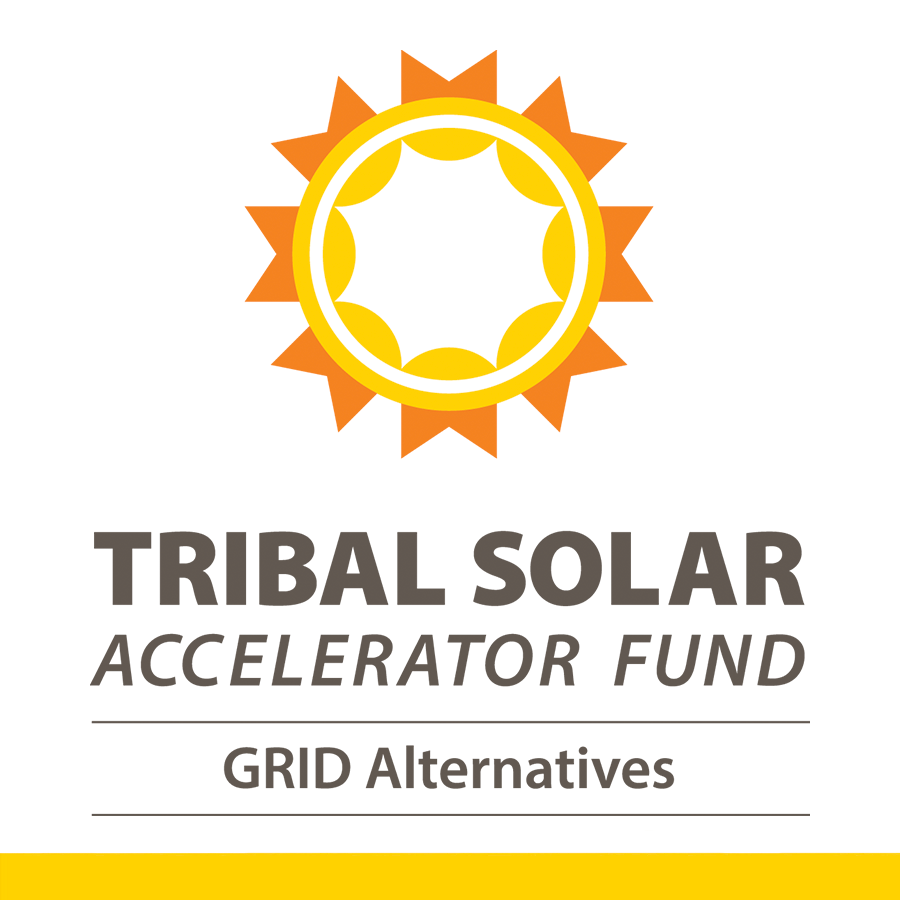Facility and Residential Project Grant Program
Applications are now closed. Thank you for applying.
- Tribal Facility Solar Project Funding can include rooftop, carport or ground-mount solar installations that meet the energy needs of the tribal community.
Tribal Facility Solar Projects Priority:
The TSAF will provide necessary funding to tribes for solar installations on tribal facilities that have the potential to generate significant cost-savings to the tribe, and/or catalyze other business development outcomes.
Tribal Facility Solar Projects Objectives:
To enhance and strengthen tribal energy development and infrastructure
To support solar projects that benefit tribal community members, tribal staff/administration, and/or tribal programs
To serve tribal facilities with high energy needs and costs - Tribal residential solar project funding is designated for solar energy installed on a low-income single-family home or small multi-family complex to significantly reduce the financial burden spent on electricity costs.
Tribal Residential Solar Projects Priority:
The TSAF will provide funding to tribes for solar installations on tribal homes to generate significant cost-savings to tribal residents.
Tribal Residential Solar Projects Objectives:
To bring solar energy to low-income single-family homes or small multi-family complexes on tribal land
To reduce and stabilize energy costs for low-income tribal members
To serve tribal members with high energy needs and costs
Tribes are eligible to apply for up to $200,000 total, which can include one or both of the funding areas, for example: $125,000 facility + $75,000 residential.
Eligibility
The TSAF is committed to serving, supporting, and strengthening American Indian/Alaska Native (AI/AN) tribal communities by investing in renewable energy development and sustainability.
The TSAF eligibility criteria is as follows:
Federally recognized tribal governments in the lower 48 states and Alaska (tribal government programs, such as tribal housing authority, cultural departments, economic development entities, etc.)
Tribally-led 501(c)(3) nonprofit organizations (fiscally-sponsored tribal community organizations, tribal community organizations without a 501(c)(3) nonprofit status may submit an application through a sponsoring organization if the sponsor has IRS 501(c)(3) status and can provide written authorization confirming its willingness to act as the fiscal sponsor.
Schools that are tribally-controlled 501(c)(3) nonprofit organizations and schools that are tribally-operated such as tribal colleges and universities (TCUs), any public or Bureau of Indian Education (BIE) schools.
The definition of “tribal-led” is: an organization in which a majority (>51%) of the board of directors and leadership team are American Indian or Alaska Native. Organizations that are not tribal-led are not eligible to apply (with or without a fiscal sponsor).
For tribal facility projects, the community served must be designated low-to-moderate income (LMI) as demonstrated by eligibility for federal, state, or tribal low-income programs, or with Census data.
For tribal household or multi-family projects, the resident households must be 80% or below the area median income as defined by the Department of Housing and Urban Development (HUD) or another LMI-serving program.
If you have any questions regarding the grant application process please contact us at tribalgrants@tribalalternatives.org

